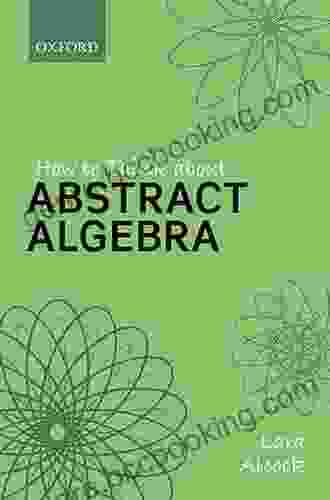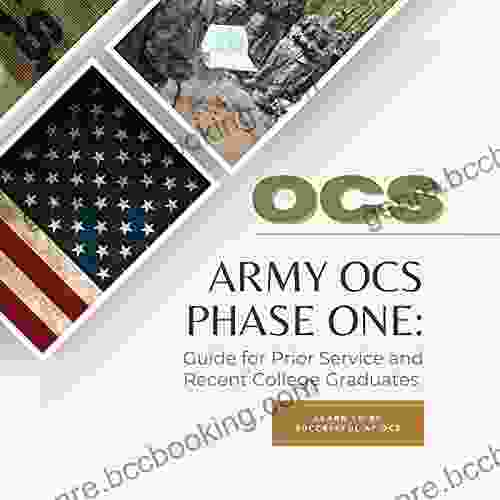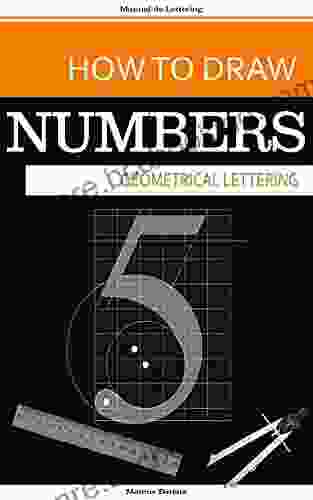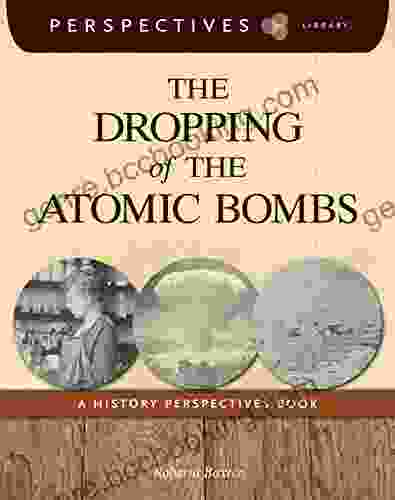How to Think About Abstract Algebra

A Guide for the Perplexed
Abstract algebra is a branch of mathematics that studies algebraic structures, such as groups, rings, and fields. It is a vast and complex subject, but it is also a fascinating one. In this book, I will introduce you to the basic concepts of abstract algebra and show you how to think about them.
4.6 out of 5
| Language | : | English |
| File size | : | 4714 KB |
| Screen Reader | : | Supported |
| Print length | : | 320 pages |
| Lending | : | Enabled |
I will start by explaining what an algebraic structure is. Then, I will introduce you to the three most important algebraic structures: groups, rings, and fields. I will show you how these structures are related to each other and how they can be used to solve problems.
Once you have a basic understanding of abstract algebra, I will show you how to apply it to some real-world problems. For example, I will show you how to use abstract algebra to solve problems in cryptography and computer science.
I hope that this book will help you to understand abstract algebra and to see its beauty and power. Abstract algebra is a challenging subject, but it is also a rewarding one. I encourage you to explore this fascinating subject and to discover its many applications.
Table of Contents
- Chapter 1: What is Abstract Algebra?
- Chapter 2: Groups
- Chapter 3: Rings
- Chapter 4: Fields
- Chapter 5: Applications of Abstract Algebra
Chapter 1: What is Abstract Algebra?
Abstract algebra is a branch of mathematics that studies algebraic structures. An algebraic structure is a set of elements that are related to each other by one or more operations. The operations can be anything, but they are usually addition, subtraction, multiplication, and division.
The most important algebraic structures are groups, rings, and fields. A group is a set of elements that are closed under an operation. This means that if you perform the operation on any two elements of the group, the result will also be an element of the group.
A ring is a set of elements that are closed under addition and multiplication. This means that if you add or multiply any two elements of the ring, the result will also be an element of the ring.
A field is a set of elements that are closed under addition, multiplication, and division. This means that if you add, multiply, or divide any two elements of the field, the result will also be an element of the field.
Chapter 2: Groups
Groups are the most basic algebraic structures. They are used to study symmetry and to solve problems in geometry and physics.
A group is a set of elements that are closed under an operation. This means that if you perform the operation on any two elements of the group, the result will also be an element of the group.
The operation that is used to define a group is called the group operation. The group operation can be anything, but it is usually addition, subtraction, multiplication, or division.
The identity element of a group is the element that, when combined with any other element of the group, leaves that element unchanged. The inverse of an element in a group is the element that, when combined with that element, produces the identity element.
Chapter 3: Rings
Rings are more complex than groups, but they are also more powerful. Rings are used to study algebraic number theory and to solve problems in geometry and physics.
A ring is a set of elements that are closed under addition and multiplication. This means that if you add or multiply any two elements of the ring, the result will also be an element of the ring.
The addition operation in a ring is commutative, which means that the Free Download of the operands does not matter. The multiplication operation in a ring is not necessarily commutative, but it is associative, which means that the Free Download of the operands does not matter when there are three or more operands.
The identity element of a ring is the element that, when added to any other element of the ring, leaves that element unchanged. The inverse of an element in a ring is the element that, when added to that element, produces the identity element.
Chapter 4: Fields
Fields are the most complex algebraic structures, but they are also the most powerful. Fields are used to study algebraic number theory and to solve problems in geometry and physics.
A field is a set of elements that are closed under addition, multiplication, and division. This means that if you add, multiply, or divide any two elements of the field, the result will also be an element of the field.
The addition and multiplication operations in a field are commutative and associative. The division operation in a field is not necessarily commutative, but it is associative.
4.6 out of 5
| Language | : | English |
| File size | : | 4714 KB |
| Screen Reader | : | Supported |
| Print length | : | 320 pages |
| Lending | : | Enabled |
Do you want to contribute by writing guest posts on this blog?
Please contact us and send us a resume of previous articles that you have written.
 Book
Book Novel
Novel Page
Page Chapter
Chapter Text
Text Story
Story Genre
Genre Reader
Reader Library
Library Paperback
Paperback E-book
E-book Magazine
Magazine Newspaper
Newspaper Paragraph
Paragraph Sentence
Sentence Bookmark
Bookmark Shelf
Shelf Glossary
Glossary Bibliography
Bibliography Foreword
Foreword Preface
Preface Synopsis
Synopsis Annotation
Annotation Footnote
Footnote Manuscript
Manuscript Scroll
Scroll Codex
Codex Tome
Tome Bestseller
Bestseller Classics
Classics Library card
Library card Narrative
Narrative Biography
Biography Autobiography
Autobiography Memoir
Memoir Reference
Reference Encyclopedia
Encyclopedia Leonie Frieda
Leonie Frieda Laurie Halse Anderson
Laurie Halse Anderson Viola Spolin
Viola Spolin Kurt Andersen
Kurt Andersen Max Robinson
Max Robinson Lesley Stahl
Lesley Stahl Mary G Houston
Mary G Houston Louise Sharland
Louise Sharland Michael Bennett
Michael Bennett Simon Cambridge
Simon Cambridge Robert Edward Grant
Robert Edward Grant Mariam Elias
Mariam Elias Susana Martinez Conde
Susana Martinez Conde Stuart D Paine
Stuart D Paine Nikki Goth Itoi
Nikki Goth Itoi Lemmy Gorak
Lemmy Gorak Lisa Mosconi
Lisa Mosconi Laura Vanarendonk Baugh
Laura Vanarendonk Baugh Linda Lael Miller
Linda Lael Miller Tarun Khanna
Tarun Khanna
Light bulbAdvertise smarter! Our strategic ad space ensures maximum exposure. Reserve your spot today!
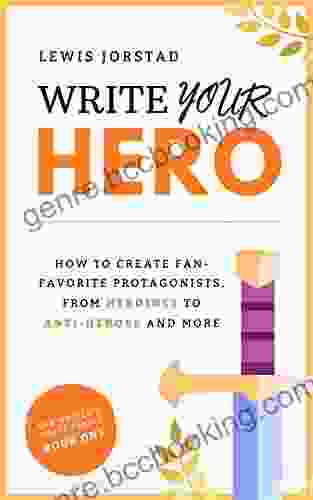
 Ernesto SabatoHow to Create Fan Favorite Protagonists: From Heroines to Anti-Heroes and...
Ernesto SabatoHow to Create Fan Favorite Protagonists: From Heroines to Anti-Heroes and... Jonathan FranzenFollow ·7.9k
Jonathan FranzenFollow ·7.9k Devon MitchellFollow ·16.6k
Devon MitchellFollow ·16.6k George Bernard ShawFollow ·9.1k
George Bernard ShawFollow ·9.1k George OrwellFollow ·6.5k
George OrwellFollow ·6.5k Vladimir NabokovFollow ·12.5k
Vladimir NabokovFollow ·12.5k William PowellFollow ·15.9k
William PowellFollow ·15.9k Avery SimmonsFollow ·2.3k
Avery SimmonsFollow ·2.3k Kevin TurnerFollow ·16.4k
Kevin TurnerFollow ·16.4k

 Branden Simmons
Branden SimmonsUnveiling the World of Tequila: A Collector's Guide to...
: Prepare to embark on a tantalizing journey...
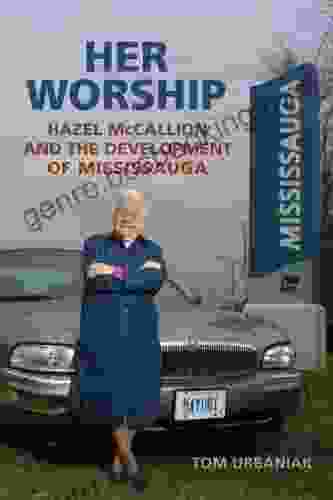
 Chuck Mitchell
Chuck MitchellHazel McCallion and the Development of Mississauga: A...
: The Matriarch of Mississauga Hazel...

 Lucas Reed
Lucas ReedUnveiling the Hidden Treasures of Tequila, Mezcal, and...
Prepare to be captivated...
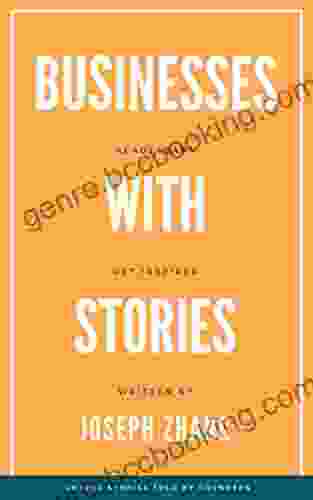
 Isaias Blair
Isaias BlairBusinesses With Stories: The Power of Storytelling in...
In today's competitive business environment,...

 Ethan Gray
Ethan GrayUnveiling the World of Tequila, Mezcal, and Sotol: The...
Embark on a...
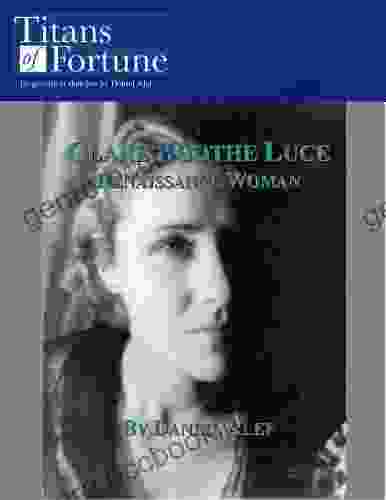
 Barry Bryant
Barry BryantClare Boothe Luce: Renaissance Woman
In the annals of history, few...
4.6 out of 5
| Language | : | English |
| File size | : | 4714 KB |
| Screen Reader | : | Supported |
| Print length | : | 320 pages |
| Lending | : | Enabled |


